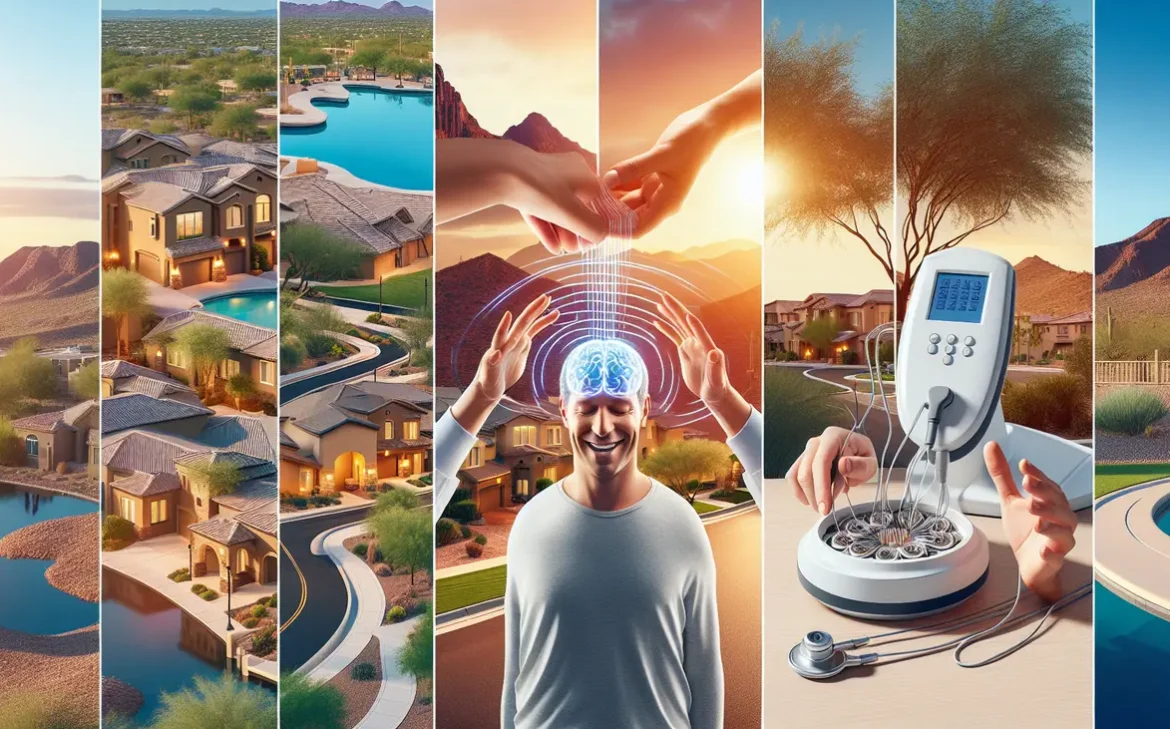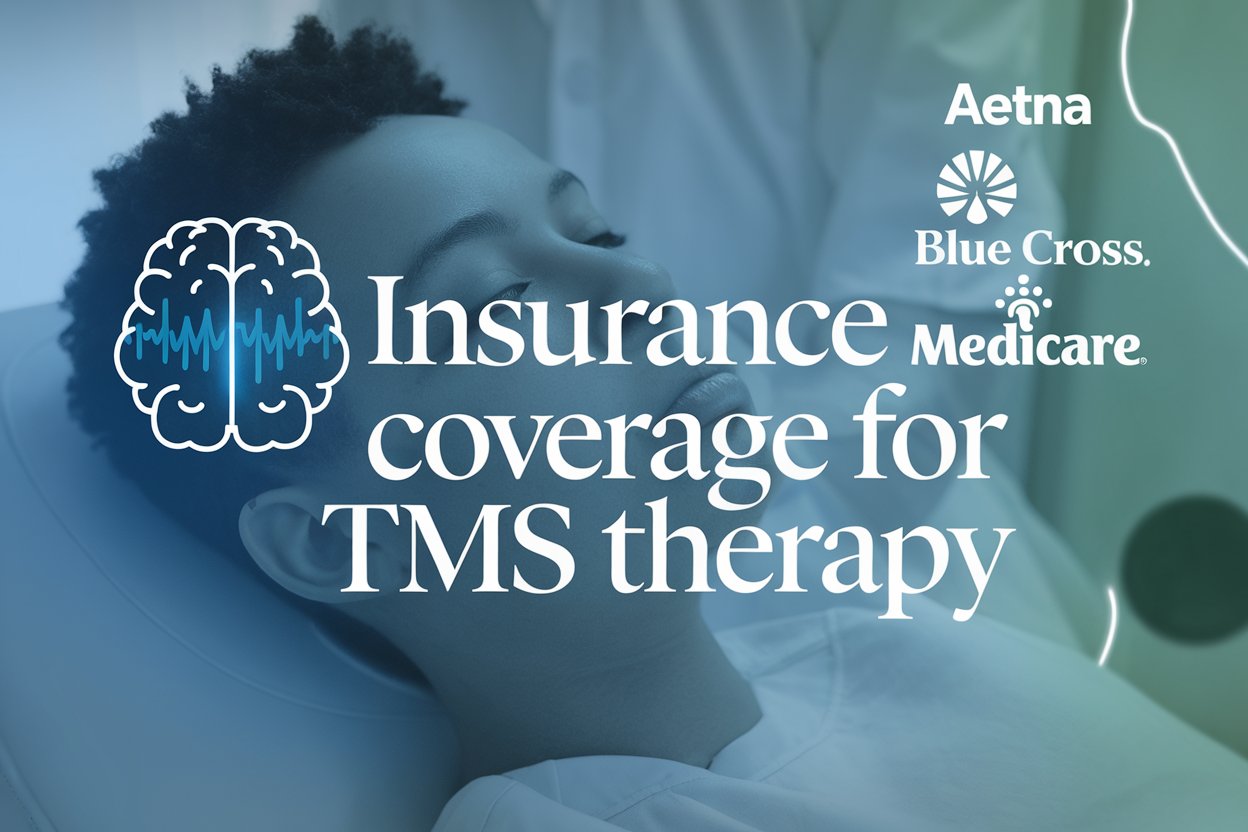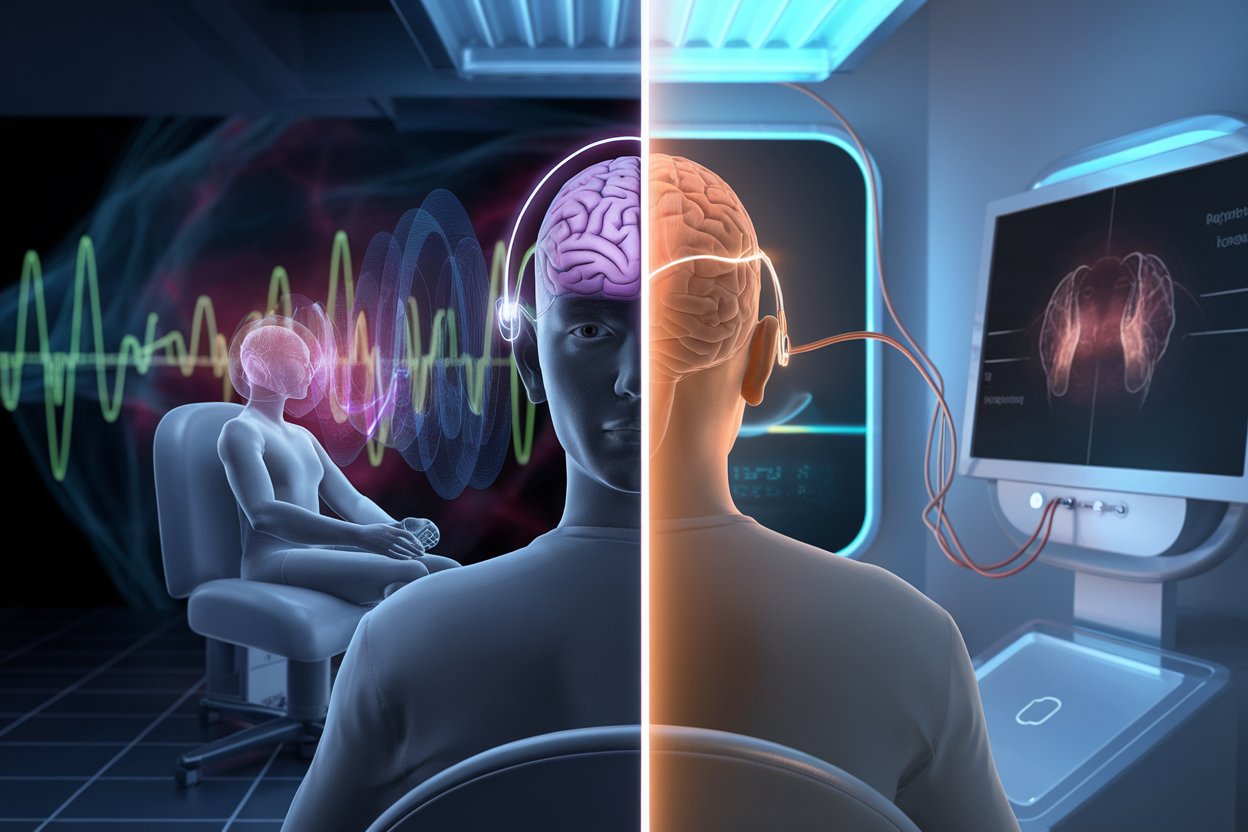Introduction to TMS and Its Impact on Mental Health
TMS, short for Transcranial Magnetic Stimulation, is making waves in Scottsdale for its role in tackling mental health issues head-on. Unlike traditional treatments, TMS isn’t about pills or talk therapy. Instead, imagine a device that can gently stimulate parts of your brain using magnetic fields. Yes, it sounds futuristic, but it’s happening now, and it’s transforming lives. People struggling with depression, anxiety, and other mental health challenges are finding real relief. The magic of TMS? It targets the brain activity linked to mood and mental health in a non-invasive way. This means no surgeries, no sedation. You’re awake, comfortable, and can get back to your day immediately after a session. It’s not just a new option; it’s a game-changer for those who’ve felt stuck.
TMS for Mental Health: Understanding the Technology
TMS stands for Transcranial Magnetic Stimulation, a groundbreaking approach in treating mental health issues. Think of it as a non-invasive method, meaning it doesn’t involve surgery or needles. Here’s how it works: a device sends magnetic pulses to specific parts of the brain responsible for mood control. It’s like a gentle nudge to your brain to function better. TMS therapy has been gaining traction, especially in places like Scottsdale, for offering hope to those struggling with depression, anxiety, and other mental health conditions that haven’t improved with traditional treatments. The beauty of TMS? It’s typically well-tolerated, with fewer side effects than medication. Plus, sessions are quick, around 20 to 40 minutes, letting you carry on with your day almost immediately. It’s a game-changer, providing a ray of hope when the traditional paths seem dim.
How TMS Treatment is Implemented in Scottsdale
Doctors in Scottsdale use a non-invasive machine to perform TMS, or Transcranial Magnetic Stimulation. It’s a big word, but think of it like a gentle tap on the brain to wake up parts that aren’t working as they should. This is especially focused on the areas affecting mood and behavior. Here’s the simple rundown: You sit in a comfortable chair, and a technician places a magnetic coil, kind of like a big, fancy headset, near your head. This device then sends magnetic pulses. These pulses are the key—they stimulate brain cells that might be taking a bit of a nap, causing issues like depression or anxiety. Before starting, you’ll have a chat with the doctor to make sure TMS is a good fit for you. This chat is crucial because, unlike a one-size-fits-all solution, they tailor the treatment to your brain’s unique rhythm. Sessions usually last around 30 to 60 minutes and are done over four to six weeks. During this time, patients can relax, listen to music, or even watch TV. The best part? You’re fully awake, there’s no anesthesia, and once the session is over, you can jump right back into your day. No downtime needed. In Scottsdale, patients are seeing real changes thanks to TMS. It’s about giving hope and a new chance for a brighter outlook on life.
The First Way: Alleviating Symptoms of Depression
TMS, or Transcranial Magnetic Stimulation, is a standout approach in treating depression, especially for those who haven’t found relief with traditional methods. It works by using magnetic fields to stimulate certain areas of the brain involved in mood control. This method shows promise in reducing, even significantly, symptoms of depression. Patients in Scottsdale are seeing changes in their lives because TMS offers a non-invasive option with minimal side effects. Unlike medication, which can come with a range of side effects, or therapy, which requires diving deep into emotions, TMS provides a different path. It’s groundbreaking in its ability to offer hope and improve day-to-day living without the complexity often associated with treating depression. People who have struggled for years are finding a new lease on life, making TMS a game-changer in mental health care.
The Second Way: Improving Anxiety Management
TMS, short for Transcranial Magnetic Stimulation, is showing a lot of promise in helping folks manage anxiety better. If you’re constantly battling with feelings of nervousness or worry, listen up. Anxiety isn’t just about feeling stressed; it can affect how you function day to day. Here’s the deal: TMS therapy targets specific parts of the brain involved in mood regulation. By doing this, it can reduce anxiety symptoms. Think of it as a reset button for your brain’s anxiety control. What’s great about it is there’s no need for meds or surgery. People in Scottsdale are noticing they’re not as overwhelmed by things that used to set off their anxiety. Plus, sessions are quick and non-invasive. You’re looking at a game-changer in managing anxiety.
The Third Way: Enhancing Cognitive Function
TMS, or Transcranial Magnetic Stimulation, isn’t just about soothing the storm in your mind; it’s sharpening your mental blade too. Picture this: a non-invasive technique that can make you think clearer, focus better, and boost your memory. That’s the third way TMS is changing the game in Scottsdale. By targeting specific areas of the brain responsible for cognitive processes, TMS strengthens the neural pathways, kind of like a workout for your brain. People who’ve gone through it report feeling more mentally agile. They’re remembering where they left their keys, focusing on tasks at work without that foggy feeling, and staying sharp in conversations. It’s not magic, but for anyone struggling with cognitive fog due to depression or other mental health issues, it sure feels close. So, when we talk about TMS, remember, it’s not only about easing symptoms of mental health conditions; it’s about elevating your cognitive game to the next level.
The Fourth Way: Promoting Better Sleep Patterns
Poor sleep messes with everything. It can make you feel cranky, forget stuff, and just not enjoy life. TMS, short for Transcranial Magnetic Stimulation, steps in to fix that. Think of it as a gentle nudge to your brain to help you sleep better. In Scottsdale, folks who’ve tried TMS noticed they started to catch more Z’s without tossing and turning all night. Why? Because TMS works on the brain parts that control sleep, making your sleep cycles more regular. No more staring at the ceiling at 3 AM. Imagine getting a solid night’s sleep and actually wanting to jump out of bed in the morning. That’s what TMS can do. It’s not magic. It’s just giving your brain a little help to sort out sleep.
The Fifth Way: Long-term Benefits and Life Changes
TMS doesn’t just offer a quick fix; it’s about long-term transformation. Most people in Scottsdale who’ve undergone TMS see significant improvements that last. We’re talking about fewer depressive episodes, better control over anxiety, and an overall greater quality of life. This isn’t just about feeling better for a few weeks or months. For many, these changes are lasting. They find themselves more connected to their passions, enjoying social activities they used to avoid, and generally feeling more positive about life. Plus, the ongoing support and continued sessions as needed ensure that this isn’t a one-and-done deal. You’re looking at a future where mental wellness isn’t just a hope; it’s achievable and sustainable.
Personal Success Stories: TMS Changing Lives in Scottsdale
Many in Scottsdale have shared how TMS transformed their lives. One person said, “I felt relief from depression symptoms I’d battled for years, after just a few sessions.” Another shared, “TMS helped me regain focus and energy I thought I’d lost forever due to my anxiety.” These stories mirror many others experiencing newfound hope. With TMS, it’s not just about the technical process; it’s about real people gaining back their lives. Each success story is a testament to how cutting-edge treatments like TMS are more than just medical procedures—they are lifelines to those who felt they were out of options.
Getting Started with TMS for Mental Health in Scottsdale
If you’re in Scottsdale and considering TMS (Transcranial Magnetic Stimulation) for improving mental health, you’re on the right path. Starting this treatment might sound daunting, but it’s pretty straightforward. First, find a reputable clinic. Scottsdale has a number with experienced professionals who specialize in TMS. They’ll evaluate if TMS is suitable for you. Generally, it’s for those who haven’t found success with traditional treatments. The actual sessions involve sitting in a comfortable chair while a device sends magnetic pulses to your brain. It sounds high-tech, but it’s non-invasive and doesn’t hurt. Most people go about their day right after. While insurance coverage can vary, many plans do include TMS, considering its FDA approval for depression since 2008. Sharing concerns and asking questions with your provider helps demystify the process. Remember, taking that first step towards exploring TMS might just be the game-changer you need for your mental health.






